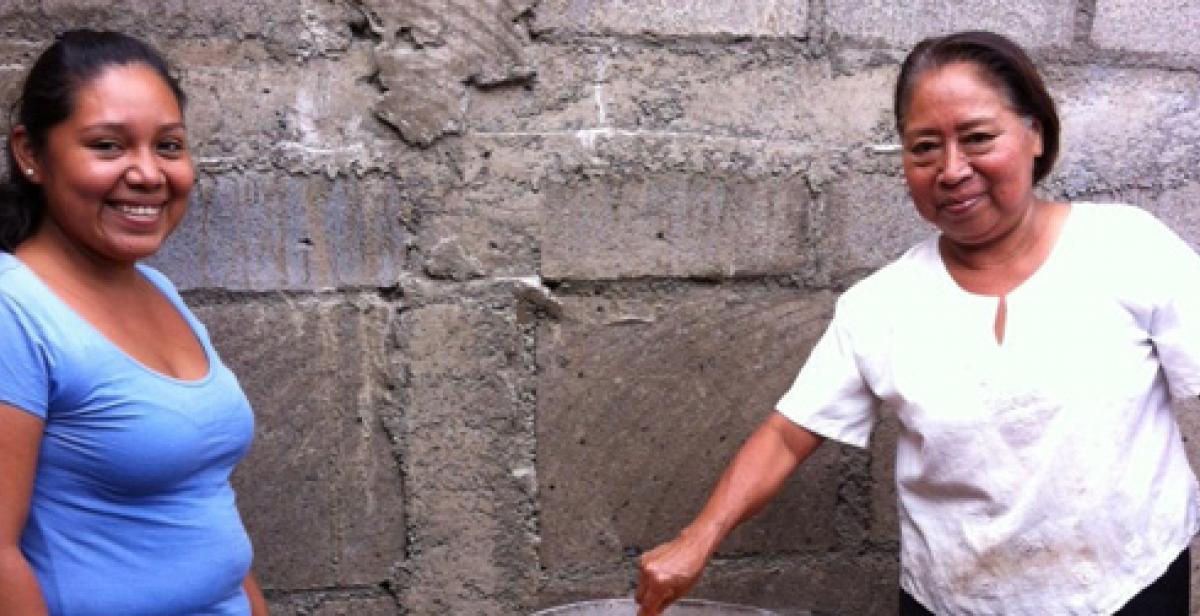Tonight we will be celebrating ‘los Aguizotes’, a traditional Masayan celebration which takes place annually on the last Friday of October. ‘Los Aguizotes’ are characters from folkloric Nicaraguan myths and legends, which come to life on the streets of Masaya in a parade of costumes, dancing and a brass band. Celebrating this wouldn’t be the same without our host families because all of them have made a huge effort to share with us their customs and traditions. We all agree that living with a host family has greatly enriched our ICS experience, so this week we spoke to one of our host families to find out a little more about their experience with Progressio ICS. Julia, her daughter Roxana and Roxana’s five children are now hosting their third cycle of UK volunteers.
How did you get involved in hosting volunteers for Progressio ICS?
Julia: I work in the school in Monimbo where the first cycle came to build the new classroom. They were looking for people to host UK volunteers, so we decided to welcome two to help to support the project.
Why have you continued to host volunteers?
Julia: Firstly, to support both the Nicaraguan and the British government who are helping to fund the project. The project has brought lots of progress for the community, particularly that of El Pochote. Secondly, because it has been a great experience for us, a cultural exchange.
What do you think the volunteers have learned from staying with you, and what have you learnt from them?
Roxana: We have been able to teach them about and involve them in the culture of Masaya, through our local traditions and celebrations. We have learnt lots about the United Kingdom that we didn’t know before. We have also learnt about living together, and we remember in particular from the first cycle the humility, discipline and punctuality of our volunteers.
What do you think of the volunteers’ work here in the community?
Julia: It is a very good project, because the financial help that comes from the British government comes directly to the community. People here are poor, so whatever help that comes is positive, but what makes this project effective is that the help comes directly to the community to the people that need it, not through a mediator.
What would you say to a Nicaraguan family who was considering becoming a host family?
Julia: I would say that to host volunteers is to support the community’s development. We have lots of friends who would like to get involved, but the selection process is rigorous as many factors are taken into account such as hygiene, the volunteers’ room and living conditions and also the way the family treats the volunteers. It’s important for the volunteers to feel part of the family.
What would you say to a Nicaraguan aged 18-25 who was considering taking part in the project?
Roxana: Actually for the last cycle, we helped in the recruitment of local volunteers. There are lots who want to take part, because for those who study on the weekends the small financial support can help towards paying their fees or help their families. There are lots of people who want to work, and a project like this is unique because there is also the chance to learn new skills such as English.
If you could change anything about your Progressio ICS experience, what would it be?
Julia: Only to be able to host more volunteers! As our house is quite small we are thinking of building a room out the back to be able to welcome more, and so that whenever our previous volunteers want to come back and visit, they will have somewhere to stay!
By ICS volunteer Beth Bradshaw



